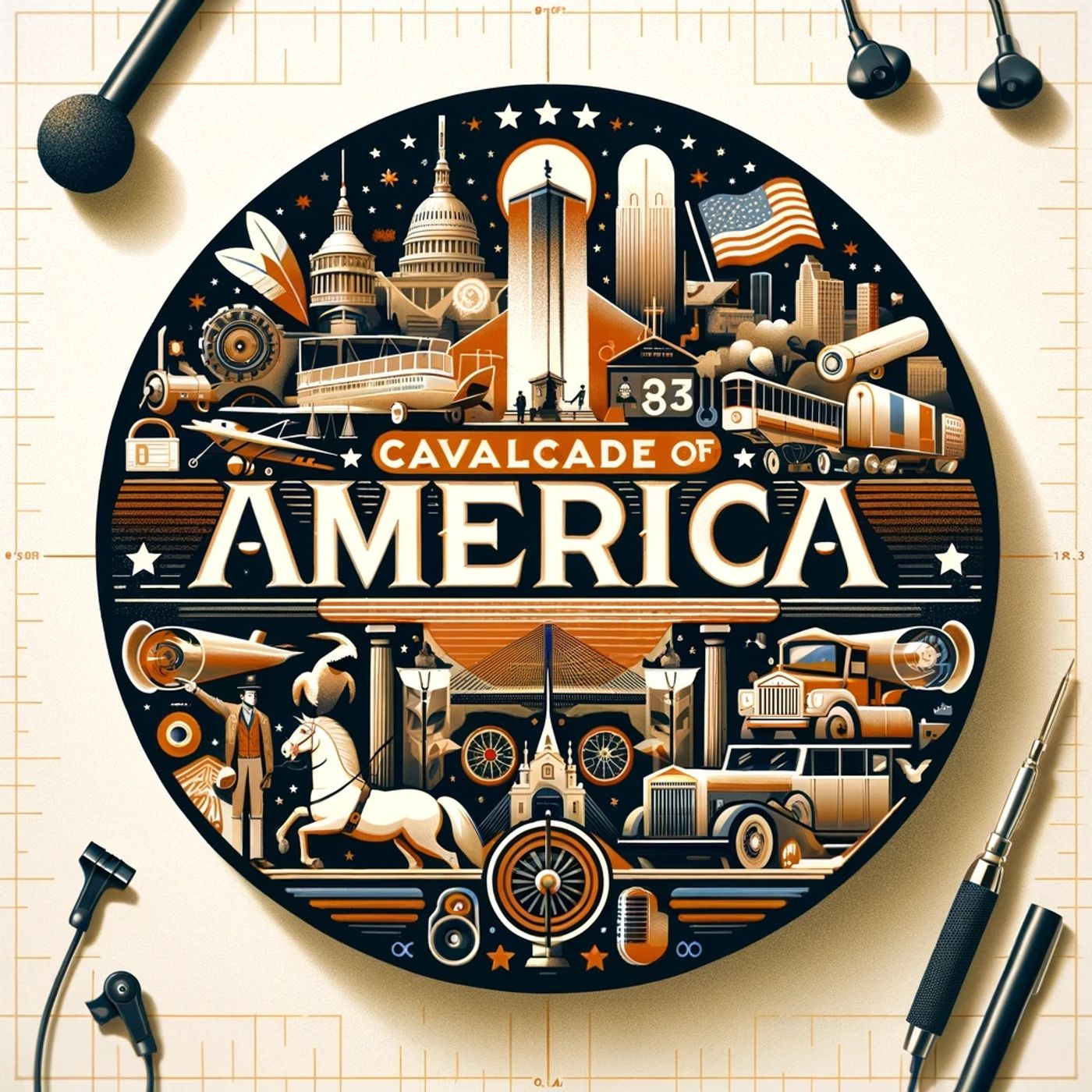"Cavalcade of America" was a significant and influential American historical drama series that aired on the radio and later on television, chronicling the history and the diverse stories of the American people. Sponsored by the DuPont Company, the show aimed to foster a sense of national pride and highlight the progress and achievements of Americans in various fields, including science, technology, politics, and the arts. Here’s an in-depth look at its various facets:Origins and Radio EraLaunch: The radio series premiered on October 9, 1935, on CBS Radio and later moved to NBC Radio.Purpose: Initially created to improve DuPont’s image, which had been tarnished by its munitions manufacturing during World War I, the show intended to focus on American innovation and the pioneering spirit.Content: Episodes were based on true stories of American heroes and heroines, inventors, explorers, and pioneers, presenting dramatized versions of historical events and figures' lives.Transition to TelevisionTelevision Debut: The television version of "Cavalcade of America" debuted in 1952 and ran until 1957.Content Shift: While the radio version focused heavily on historical narratives, the TV adaptation expanded its scope to include contemporary stories, particularly in the fields of science and technology, aligning with DuPont's business interests.Themes and NarrativesEducational Value: The series was known for its educational content, often used in schools as a supplementary teaching tool.Patriotism and Progress: A recurring theme was the celebration of American ingenuity, the spirit of innovation, and the country's progress over the years.Diversity of Stories: From the building of the railroads to the invention of nylon (a nod to DuPont’s own achievements), the series covered a wide range of topics and figures, including lesser-known stories of women and minority groups.Impact and LegacyCultural Influence: "Cavalcade of America" played a crucial role in shaping the American public's perception of history and progress. It was one of the earliest examples of corporate-sponsored entertainment and is considered a pioneer in this respect.Educational Impact: The show was praised for its attempt to make history accessible and engaging to a broad audience, including young listeners and viewers.Preservation and Accessibility: Many episodes of the radio series have been preserved and are available to the public through various archives and online platforms. The television episodes, however, are harder to find, with only a portion available in archives or for sale.Conclusion"Cavalcade of America" stands out as a testament to the power of media in educating and uniting a nation through storytelling. Its legacy endures in the form of recordings and scripts that continue to offer insights into America's past and the values that have shaped the nation. The show’s impact on both radio and television storytelling, as well as its innovative use of media for corporate branding and educational purposes, marks it as a significant chapter in American cultural history.for more https://www.quietperiodplease.com/
